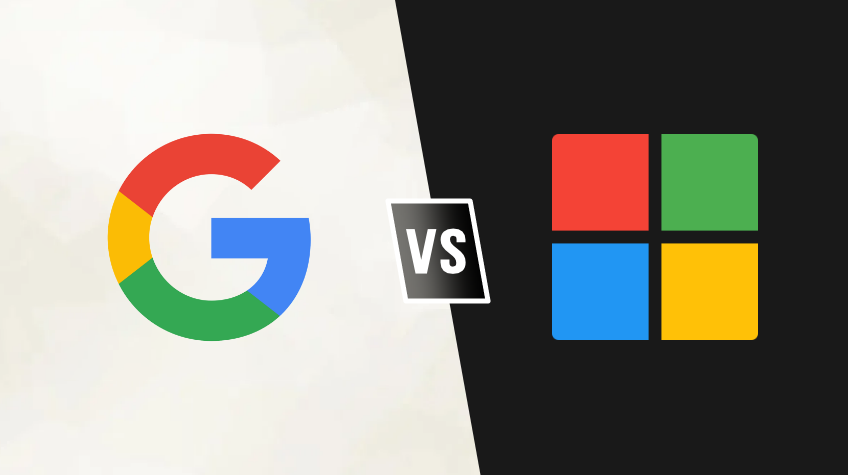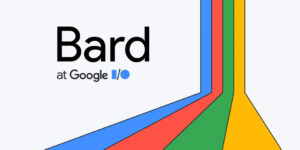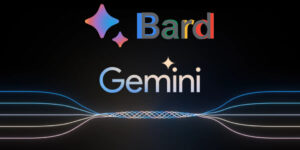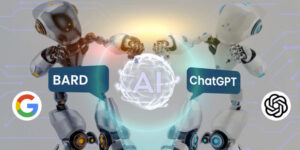
Since the startup OpenAI released ChatGPT (Generative Pre-trained Transformer) in November of last year, the race to develop a generative artificial intelligence (AI) tool has brought two of the greatest tech companies, Microsoft and Google, against each other. And the two tech giants seem to have AI Battle bolstering between them.
AI Control can be found in essentially every sector today. Unquestionably, AI-driven Chatbots have made it easier for businesses to communicate with their clients and provide them with a higher-quality experience.
So, if you’re wondering how Bard vs. ChatGPT will impact the business world, then read this post.
In this post, you’ll learn how Bard stacks up against ChatGPT in a head-to-head matchup.
So, let’s get started…
Table of Contents
- What exactly is a Bard?
- What exactly is ChatGPT?
- Which is superior: Bard vs. ChatGPT?
- What Contributions Have ChatGPT and Bard made to the Field of Artificial Intelligence?
- Bard vs. ChatGPT: Which Is the Most Precise?
- The AI Battle
- Conclusion
What exactly is a Bard?
Bard, like ChatGPT, is an artificially intelligent chatbot that can reply to users’ questions in natural language. With the right trigger, one can elicit responses that sound human. It is powered by Google’s Linguistic Model for Dialogue Applications (LaMDA). Google claims that Bard’s ultimate goal is to merge the depth of human knowledge with their massive linguistic models’ speed, accuracy, and originality.
It uses information from the web to offer responses that are current and of high quality. So, by accessing the data, Bard is able to develop further bits of information in real-time. Users will be able to engage in discussion with the chatbot, which is a feature that is identical to that of ChatGPT. This function allows users to interact with the chatbot.
What exactly is ChatGPT?
The “Chat GPT” language model is a component of OpenAI’s GPT (Generative Pre-trained Transformer) model. It was designed for use in chatbots and other conversational AI applications, where it can generate responses that sound natural.
Chat GPT is an AI-powered chatbot designed to mimic human interaction. Its ability to understand and generate new versions of natural language makes it one of the most sophisticated AI models currently accessible.
Which is superior: Bard vs. ChatGPT?
In point of fact, we are unable to determine which one of them is superior by comparing the two of them. Both ChatGPT and Bard are a kind of language-based conversational AI models. However, Bard AI has an advantage over ChatGPT due to a few critical aspects.

The primary distinction resides in the sources from which the two chatbots obtain their information. Bard pulls its information directly from the Internet, in contrast to ChatGPT, which pulls its information from the data it was trained on.
When we compare two chatbots based on the period of the cutoff of their knowledge, Google’s Bard makes a significant jump forward because Bard continuously pulls information from the internet; it provides the most recent information. On the other hand, ChatGPT is unable to accommodate more recent research and information because its knowledge source stopped collecting data in 2021.
The material found on the internet is said to undergo real-time modifications when it comes to Google’s Software.
ChatGPT is powered by GPT 3 model, whereas the Bard chatbot is powered by LaMDA. Bard is trained in such a way that it can grasp natural languages effortlessly. The information that is provided by ChatGPT is in the form of text prompts, whereas the replies provided by the Bard chatbot are in a format that is easier to understand.
Now, when we talk about access, the most fundamental version of ChatGPT is freely accessible for everyone to utilize, whereas Bard only has restricted access at this point.
At this time, only selected individuals have access to the Bard chatbot for testing purposes, but in the following weeks, it will be made accessible to the general public.
In contrast to this, ChatGPT has reached a significant milestone in less than two months as it has collected a total of 100 million users in just two months.
When drafting his response, Bard is able to take into consideration events that have occurred more recently, which the most is the striking difference between the two of them.
All in all, when it comes to their deficiencies, both of the chatbots have their own individual problems. Well, whatsoever, both Microsoft and Google aspire to improve their search offerings in the near future by adding solutions based on AI.
What Contributions Have ChatGPT and Bard made to the Field of Artificial Intelligence?
The launch of Bard and ChatGPT will, without a shadow of a doubt, have some type of impact on the advancement of AI. OpenAI’s ChatGPT appears to be nearing the end of its reign as the dominant AI chatbot platform as, Google’s artificial intelligence chatbot Bard was unveiled lately by CEO Sundar Pichai.
But, the declaration failed miserably from the get-go. Due to a factual error made during the live demo, investor trust was shaken. In addition, Alphabet, Google’s parent company, lost $100 billion in market value.
Furthermore, Microsoft has stated that ChatGPT would be used to power its Bing search engine and Edge web browser.
Although chatbots have been around before, OpenAI’s ChatGPT was the first publicly available AI-powered interactive tool. Using a question and response structure, this “natural language processing” program can quickly and efficiently compile data from across the web.
Bard vs. ChatGPT: Which Is the Most Precise?
Bing ChatGPT appears to be providing accurate replies at the time, in addition to providing links that quote the source of the summary.
The launch of Google Bard, on the other hand, was marred by an embarrassing gaffe when the artificial intelligence chatbot gave the wrong answer. This mistake caused a drop in the price of Google shares.
Alphabet, Google’s parent company, lost $100 billion in market value as a result of a factual inaccuracy made during the live demonstration.
The question “What new findings can I tell my 9-year-old about that were discovered by the James Webb Space Telescope?” was answered incorrectly by Google Bard.
In response to this question, Bard gave a response consisting of three bullet points, one of which stated that the telescope “captured the very first photographs of a planet outside of our own solar system.”
On the other hand, as stated on the website of NASA, the very first photograph of an exoplanet was taken in the year 2004.
The AI Battle
Aside from Google vs. Microsoft, there are many other top-notch companies that are creating their own AI-powered chatbots.
After relaunching the Bing search engine this week, Microsoft CEO Satya Nadella declared, “The race starts today, and we’re going to move, and move fast.” This set the stage for a chatbot competition between the two tech giants Google vs. Microsoft.
Using Bing will be like interacting with both a search engine and an artificial intelligence chatbot.
Bard, Google’s experimental conversational AI service, uses a chatbot-like mechanism to provide factual inputs on complicated topics ostensibly. The linguistic Model for Dialogue Application (LaMDA), which was developed by the business, serves as the foundation for this system.
Even Quora, the question-and-answer social network, launched Poe, a chatbot powered by artificial intelligence, on February 8, 2023. The website has even made the chatbot available for public usage.
Quora CEO Adam D’Angelo made the news in a blog post that appeared on the company’s site. D’Angelo claims that Poe will enable users to ask questions of a wide variety of AI-powered bots, get instant responses, and have conversations with such bots.
‘Ernie Bot,’ a ChatGPT-style initiative developed by Chinese tech giant Baidu, has successfully completed internal testing.
Sequoia Ventures, among others, is considering making an investment in ChatGPT and other generative AI tools on the belief that they would establish a new standard for how humans and machines learn together.
To sum it up…
Ever since they were first introduced to the public, Google Bard and Bing ChatGPT have caused a sensation all over the world.
The bare-bones version of ChatGPT is available to everybody for free, but Bard only has limited access. The Bard chatbot is now only available to a small group of people for beta testing but will be made available to the public in the coming weeks.
Moreover, ChatGPT has amassed 100 million users in less than two months, a stunning achievement in its short stint. Nevertheless, Google Bard is not far behind. Google Bard is quickly catching up to Bing ChatGPT, which was the first to integrate a conversational AI chatbot into its search bar.
Whether it be Google’s Bard or Microsoft’s Bing ChatGPT, both platforms are highly intriguing. However, they need to be treated delicately because this is a field of technology that has the potential to have far-reaching repercussions.






